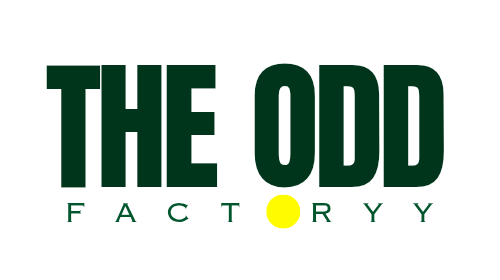The worldwide garment industry, including several prominent fashion businesses, has been hit hard by the COVID-19 pandemic. Reduced consumer spending on non-essentials led to decreasing demand and profits, forcing numerous firms to close shop or declare bankruptcy, affecting everyone from huge clothing stores to tiny clothes makers. Approximately 25,000 best garment manufacturers in India are expected to collapse this year, and about 45 retail corporations have filed for bankruptcy so far this year.
Impact of Covid-19 on the Textile Industry:
Covid-19\’s extensive influence impacted all the numbers, and the industry has decreased dramatically as a result. The domestic market suffered a significant decline due to immediate cancellations and a lack of orders. Consumer demand fell, resulting in a lack of money circulation.
The workforce was the most brutal hit, leaving millions of skilled and unskilled workers with little choice but to return to their homelands. Small-scale industries were the hardest hit, with enormous liabilities and no income, several business were forced to close permanently. The impacts have been such that the textile and clothing industry\’s growth projections have shrunk by 28-30%. The domestic market\’s recovery has been highly steep post-pandemic, according to CITI (Confederation of Textile Industries).
Order cancellations, unpaid invoices, lack of logistics, and other issues have plagued the global supply chain. The Textile Industry\’s supply network is its backbone, and a cohesive and robust supply chain generates revenues. However, production was halted worldwide as a result of the COVID-19 outbreak.
Major corporations were canceling or deferring orders, which impacted the supply chains of a small order clothing manufacturer in India. This scenario has affected the workforce because it is their only source of income. Globally, changes in maritime transportation have been noticed, such as a decrease in sailings and cargo demand.
Adverse Effect Of Covid-19:
Apparel Workers\’ Livelihoods are in jeopardy
As the coronavirus spread across India, factories in the textile industry felt the impacts. Due to the temporary closure of companies in India, firms have been obliged to defer wages to compensate for losses. India\’s textile and garment business mostly use migrant labor from several states, with a substantial portion of the workforce coming from adjacent villages that use public transportation.
Most migrant workers are leaving to their home countries due to the current situation, particularly the country\’s constant preventive efforts and public awareness generated by the government to combat the coronavirus pandemic. It will be difficult to return these migrant employees to the factories once the lockdown limitations are released, and production resumes.
Migrant Workers:
Factories have closed, and migrant employees have returned home due to the nationwide lockdown. In March 2020, they got particularly heavily impacted by the Covid-19 epidemic. All types of apparel-related businesses were shuttered, like private label clothing manufacturers in India due to the shutdown, and no one knew when they would reopen. In the workers\’ minds, there is a great deal of uncertainty and apprehension.
Many employees claim they were not paid when their plants were closed. They would not have been able to survive in the large cities. As a result, they returned to their homes in Bihar, Uttar Pradesh, and Odisha. According to a survey, roughly 64% of apparel factories lost half of their employees.
Prices of raw materials declined:
Cotton yarn exports from India, particularly China, have dropped dramatically in the last two months. As a result, the excess cotton yarn has been redirected to the domestic market. Moreover, cotton yarn costs have fallen 3-5 percent in the last month due to this.
Polyester prices have been impacted due to lower demand and dropping oil costs. Polyester prices have dropped by more than 20% due to lower demand, resulting in considerable losses for the fiber industry.
Retailers are closing their doors, and demand for the future is uncertain:
There has been a massive drop in demand due to the increasing prevalence of coronavirus in the US and EU, the two key worldwide markets for garments. To prevent the spread of coronavirus, a growing number of fabric dyeing manufacturers in India and worldwide have announced the temporary shutdown of their physical locations. Many consumers have canceled their orders and put a moratorium on future purchases.
Buyers generally begin shipping goods from Asia for the holiday season as early as June. With the looming health crisis and a time of uncertainty ahead, the COVID-19-induced economic slowdown might negatively impact holiday sales, which account for the majority of merchants\’ revenues. This year, the EU textile and apparel industry expect a more than 50% reduction in sales and production. Given the uncertainties surrounding the virus\’s scope and longevity, worldwide garment consumption is projected to get impacted for some time.
Will The Garment Industry Recover?
The industries got compelled to reassess their operations for the better part of 2020 and 2021. They changed their sourcing and distribution networks, relying on digital solutions hoping that the pandemic would be over soon. Retailers worked rapidly to ensure that their ordering and delivery systems were user-friendly. There was a rise in export sales in the second quarter of 2021. However, due to lower demand in Europe, imports from China and the United Kingdom have decreased. They didn\’t have to wait long because most textile businesses began preparing for operations by the end of the second quarter. As more people sought work in the industry, production levels rose.
There will be no business as usual:
Though India\’s domestic Covid-19 situation is deteriorating by the day, with over 400,000 new cases reported just on Saturday, resumption of consumption in other markets provides a ray of hope for the country\’s embattled artisans. Kering and LVMH, the parent businesses of some of Europe\’s most prestigious fashion labels, have both reported improved sales.



